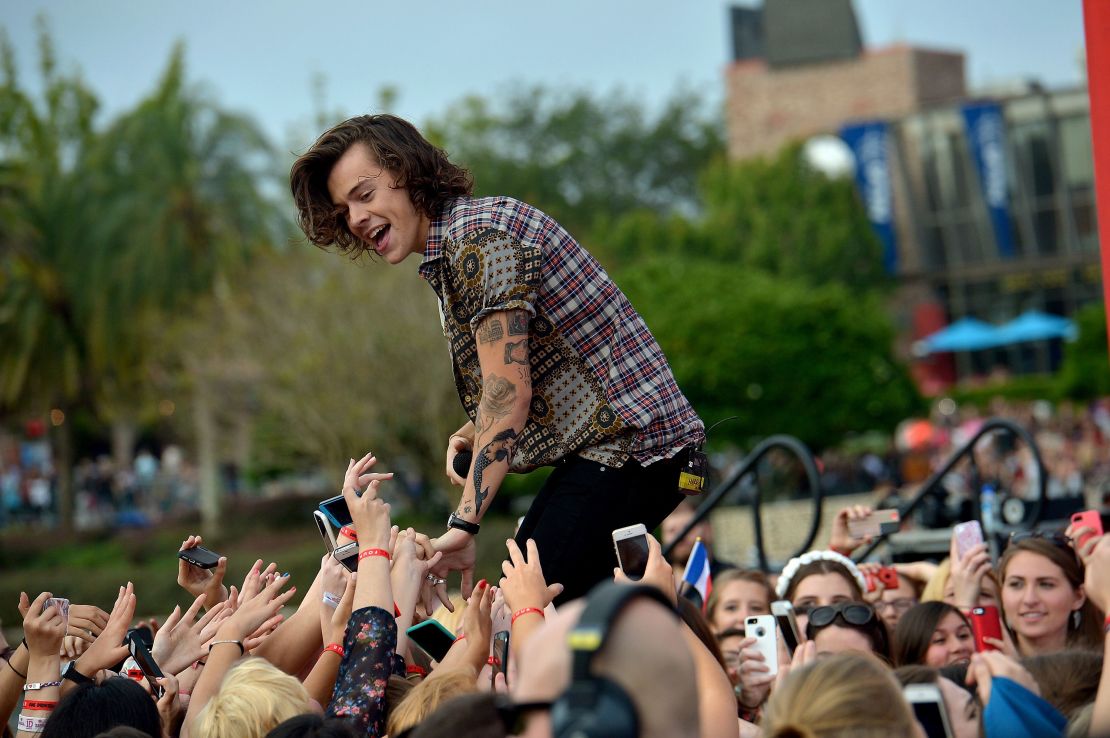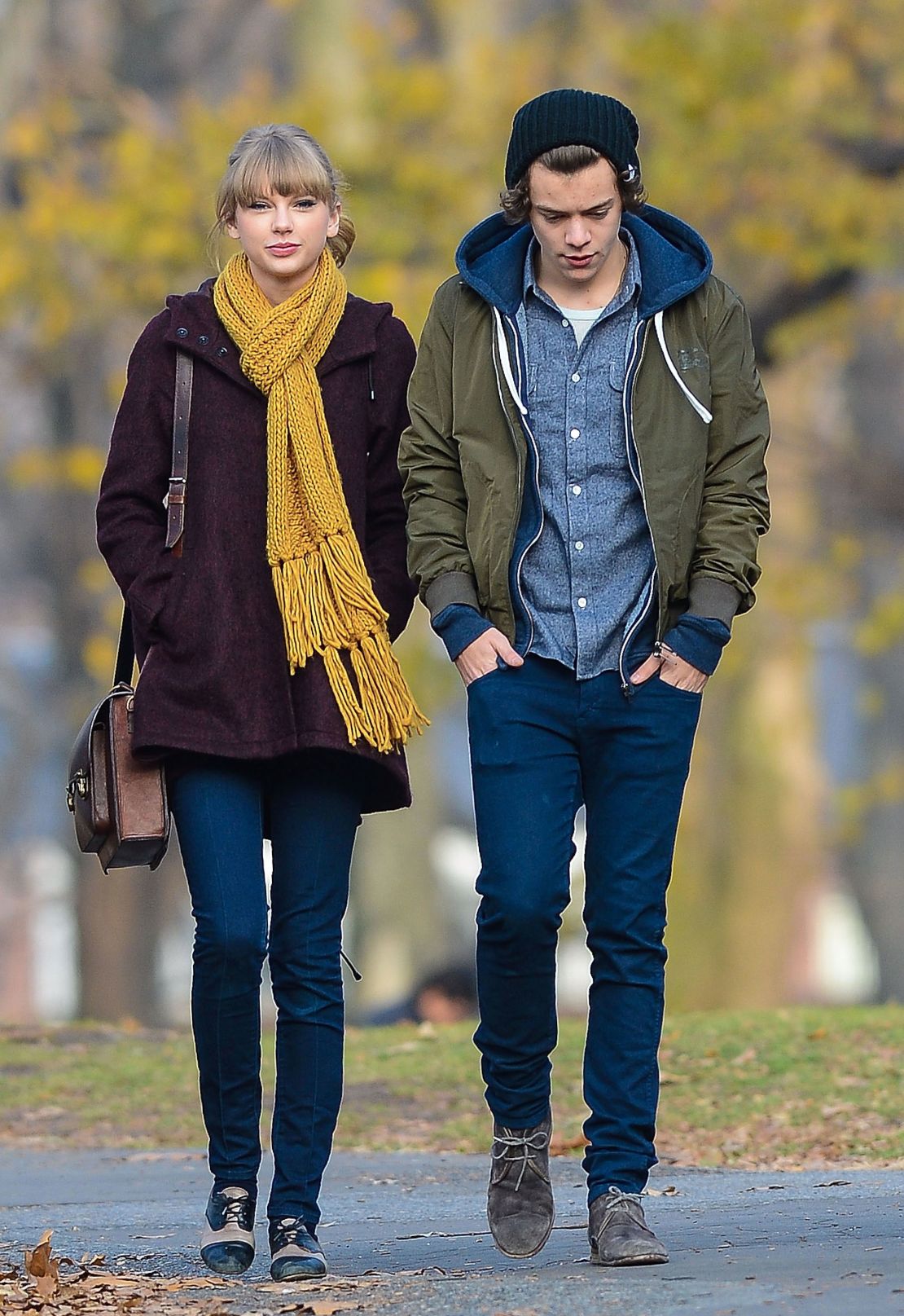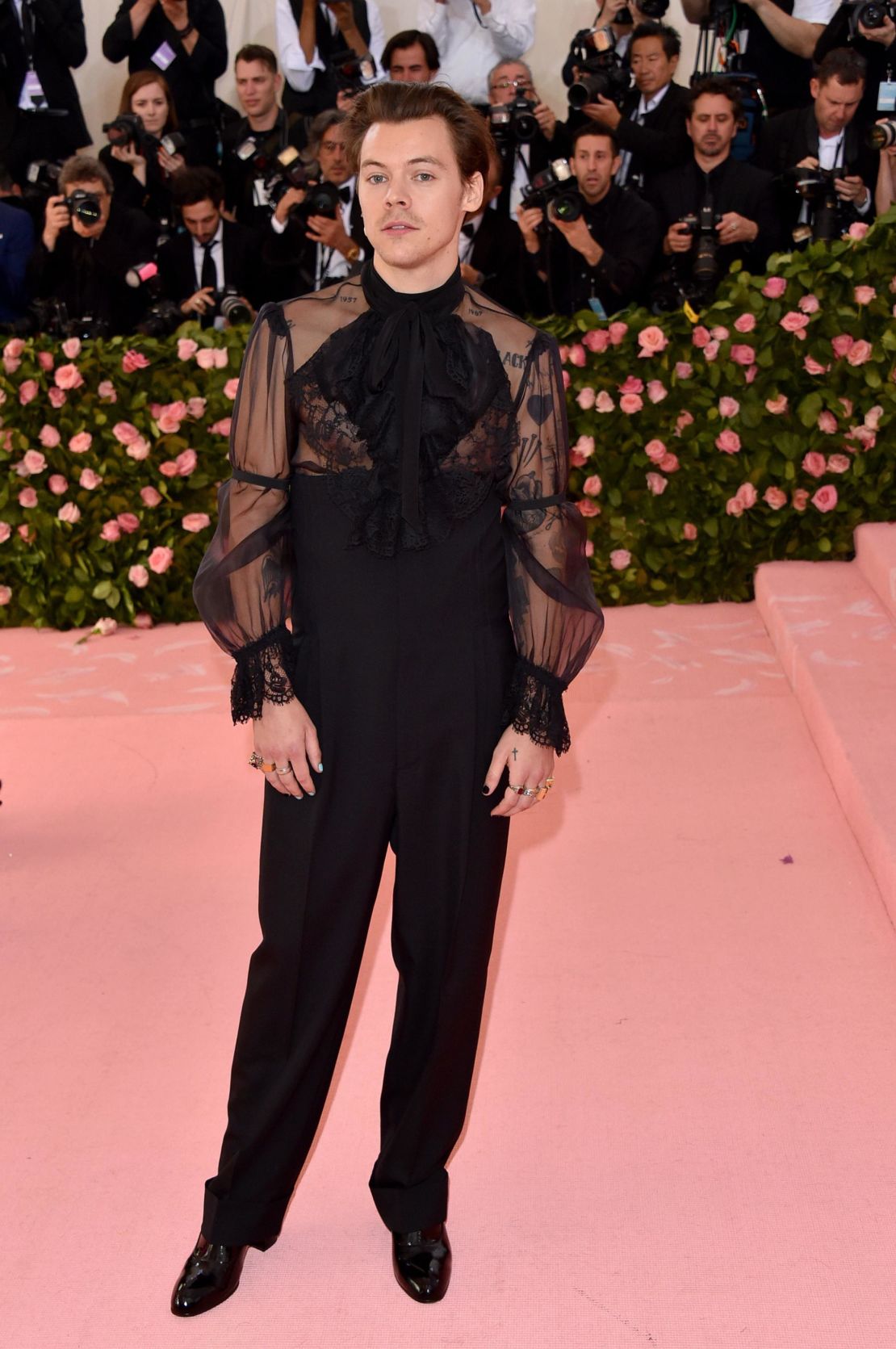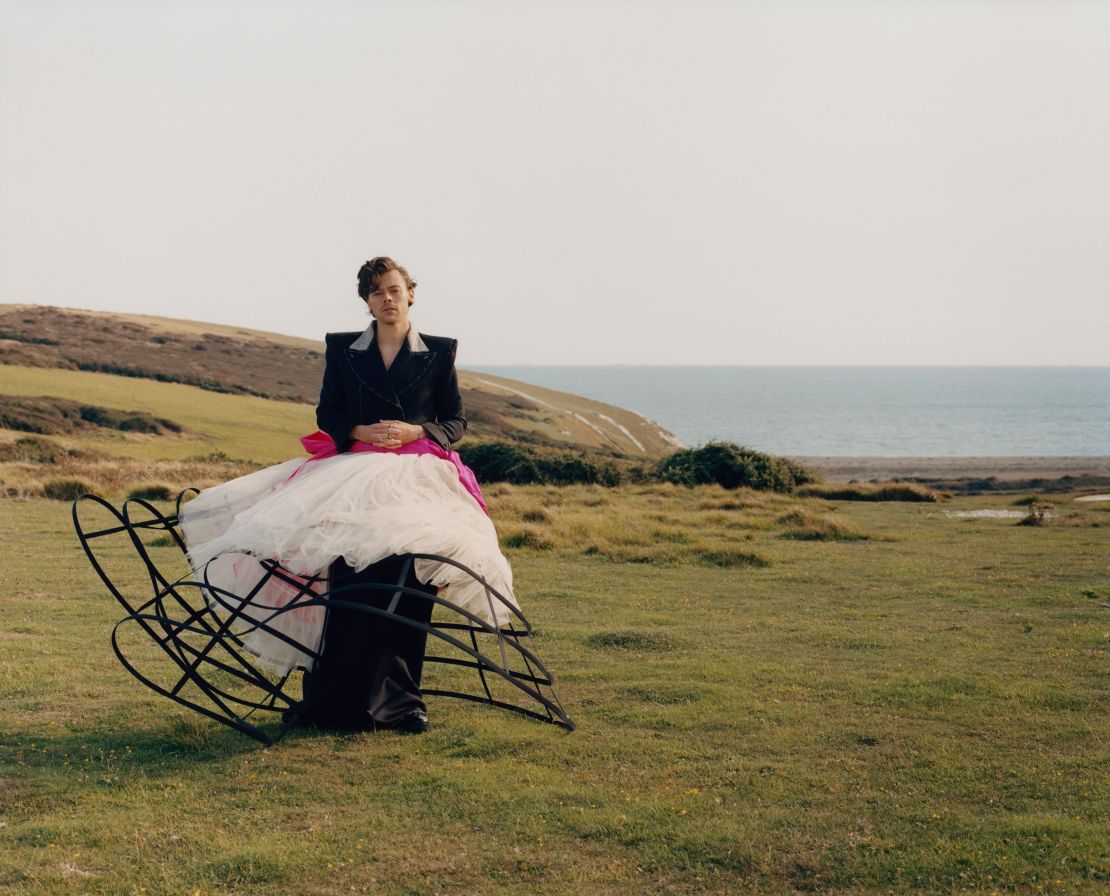From One Direction’s teenage heartthrob to the star of one of American Vogue’s most talked about covers, Harry Styles has come a long way since debuting on Britain’s “The X Factor” back in 2010 – especially when it comes to fashion.
As his solo career took off, he traded the preppy look for experimental and androgynous ensembles, firmly establishing himself as a sartorial risk-taker who unapologetically loves to play with fashion.
With Tuesday marking his 28th birthday, we chart his decade-long wardrobe evolution.
From blending in to breaking the mold
Styles wasn’t a style icon from the get-go. But, even back in 2010, there were signs he might become one: the loose, skinny scarf he wore to his “The X Factor” audition (baby-faced and aged only 16), or the wrist bracelets he wore during the early One Direction years – small but telling hints of flair from the singer.
For the most part, however, Styles’ closet was consistent with the typical teenage boy band aesthetic. There were lots of coordinated – though never matchy-matchy – outfits with fellow bandmates Zayn Malik, Niall Horan, Liam Payne and Louis Tomlinson: tracksuits by preppy British brand Jack Wills and smart tailored ensembles in complementary colors. Styles would sometimes stamp his own personal mark on these looks – a slimmer silhouette here, a voluminous bow-tie there, or a trimmed blazer while the rest of the group wore hoodies – but he never strayed too far from his bandmates.

Off the red carpet, it was all very “boy-next-door”: checkered shirts with rolled-up sleeves and khaki jackets, cozy cardigans and knitted beanies. This phase reached its apex in 2012 and coincided with his brief romance with Taylor Swift. It was an era later immortalized in Swift’s song “Style” (believed by many fans to be about Styles), which seemed to capture an apt description of the singer at the time: “You got that James Dean daydream look in your eye … You got that long hair, slicked back, white T-shirt.”

In early 2013, just as he and Swift parted ways, Styles began upping his fashion game. He embraced a more defined style: tight jeans, print shirts or sweaters (preferably from Burberry, Marc Jacobs or Saint Laurent) and leather ankle boots, a clear homage to the “skinny rocker” look once embodied by Mick Jagger and David Bowie. Then came a string of tattoos, increasingly unruly locks framed by ever-changing headscarves and, by the year’s end, a British Fashion Award for his personal style.
An icon was born (and was dressed, mostly, in patterned shirts).
The Gucci years
By 2015, Styles was a fashion week fixture and the unofficial muse of Gucci’s creative director, Alessandro Michele, who had joined the Italian fashion house that year.
Flaunting longer hair and debonair swagger, the singer began appearing in one theatrical Gucci suit after the other. Under the guidance of stylist Harry Lambert, he showed a penchant for sharp tailoring and fierce ensembles that often blended the masculine and feminine – another attribute that would soon become synonymous with his fashion sense.
Among the countless highlights from this time are the floral 1970s-inspired Gucci two-piece, from Michele’s Spring-Summer 2016 collection, that Styles wore to the American Music Awards in November 2015, and the retro petal print he donned a month later at one of One Direction’s last ever gigs, which confirmed Styles could nail a head-to-toe printed look just as he could a pair of skinny jeans.
Styles was now miles ahead of his bandmates, sartorially speaking, and his wardrobe has only grown bolder, campier and more eclectic since.
In 2017, as he launched his eponymous solo album, Styles began experimenting more openly with gender-bending fashion – mostly still in Gucci – both in his music videos and on tour. Pussy-bow satin blouses were followed by cotton candy pink suits, which were in turn followed by stacked heels and flashy rings.

No one was surprised when he was unveiled as the face of Gucci’s tailoring campaign in June 2018. And few blinked an eye when he landed a co-host role at the 2019 Met Gala, alongside Lady Gaga, Alessandro Michele, Serena Williams and Anna Wintour. There, he wore Gucci, of course: a black lace top with a bow and sheer sleeves that revealed his arm tattoos, along with chunk heels and a single dangling pearl earring.
The look perfectly encapsulated Styles’ determination to push the boundaries of self-expression through clothes that defy gender categorizations. As he told The Guardian that year: “What women wear. What men wear. For me it’s not a question of that. If I see a nice shirt and get told, ‘But it’s for ladies.’ I think: ‘Okaaaay? Doesn’t make me want to wear it less though.’ I think the moment you feel more comfortable with yourself, it all becomes a lot easier.”
Vogue’s first cover boy
That “self-comfort” has continued to guide Styles’ fashion in all the best ways.
It was evident in the cover image for his second solo album “Fine Line,” released in December 2019, which saw Styles rocking a bright pink custom Gucci top and white pants, his hips theatrically exaggerated by photographer Tim Walker’s fisheye lens.

It also shone extra bright at the Brit Awards in February 2020, where he wore three different looks – a brown Gucci suit with a broderie anglaise collared shirt, purple sweater and string of pearls for the red carpet; a custom Gucci lace jumpsuit for his barefoot stage performance; and a vibrant yellow Marc Jacobs suit with a purple pussy bow for the rest of the evening – and was arguably the night’s unofficial style winner (though he didn’t win anything for his music).
And Styles’ open-minded approach has manifested in his efforts to boost emerging and experimental designers like Harris Reed, Steven Stokey-Daley and Daniel W. Fletcher, and in his decision to wear fishnet stockings and lipstick on the cover of British magazine Beauty Papers last March.
And then, of course, there was the American Vogue cover in November. Shot by Tyler Mitchell and featuring Styles in a Gucci jacket and dress, it was the first time a man had fronted the fashion title solo. Inside, a photo spread saw the singer sporting a full-length gown and tuxedo-inspired skirt.
“You can never be overdressed. There’s no such thing,” he declared in the accompanying interview, adding: “Now I’ll put on something that feels really flamboyant, and I don’t feel crazy wearing it. I think if you get something that you feel amazing in, it’s like a superhero outfit.
“Clothes are there to have fun with and experiment with and play with. What’s really exciting is that all of these lines are just kind of crumbling away. When you take away ‘There’s clothes for men and there’s clothes for women,’ once you remove any barriers, obviously you open up the arena in which you can play.”
Through his wide-reaching influence and refusal to pigeonhole his sexuality or clothing choices, the British artist has helped normalize the conversation around gender fluidity. And with items of his clothing already acquired by both a major museum and a top designer’s private archive, it seems Harry Styles’ place in contemporary fashion history is all but guaranteed.











